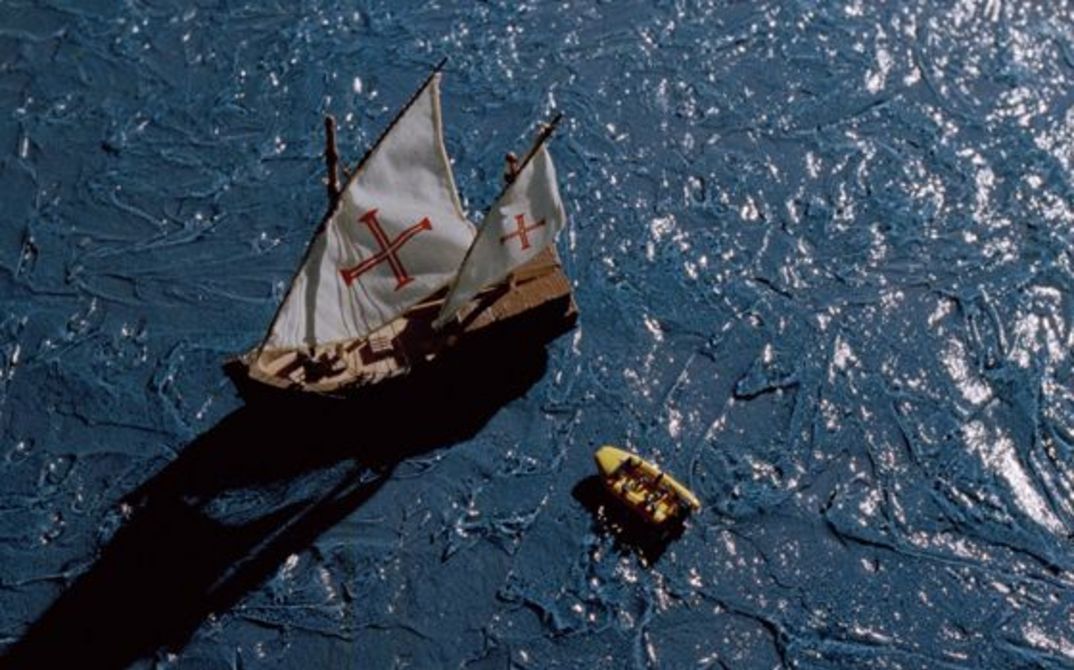RAPACE (Bird of Prey, Portugal 2006, 26.5., screening attended by João Nicolau) Hugo has finished his studies and now just lives for the moment. He hangs out at home, spends a lot of time horizontal, listens to music, plays the piano, and annoys the hell out of cleaning lady Luisa. He writes a rap song with a friend about the neighborhood in which they live. In the process, he's thrown off balance by Catarina, a pretty translator. At a party in a white cube, they dance together to a song called "We call it madness". And high in the air floats a falcon. CANÇÃO DE AMOR E SAÚDE (Song of Love and Health, Portugal/France 2009, 26.5, screening attended by João Nicolau) João works unenthusiastically at a locksmith's. As there's not much to do, he roams through the shopping mall from time to time and pumps coins into a love test machine. The store's scant clientele consists only of women. Art student Marta from the hills gives him an unusual commission, as the key that he copies for her opens more than just one door. Music by Bach and British folk from the 60s, a French-Portuguese dictionary, a triangular glass pavilion by Dan Graham, a tennis court and the screeching of jays complete the story, which veritably teems with ideas. O DOM DAS LÁGRIMAS (The Gift of Tears, Portugal 2012, 26.5., screening attended by João Nicolau) A man goes hunting. Whilst walking through the forest, he comes across a bird’s nest, a cave, and a woman asleep in a glade. When he approaches a castle, he hears pitiful crying and catches sight of long blond tresses dangling out of a barred window. The princess to whom it belongs drives a motorbike, if she is indeed a real princess, which the kids from the city doubt anyway. A discussion about relationship problems is held before the shopping centre, while the building site, bowling alley, and rock concert are all very much of this world. An original blend of fairy-tale motifs and everyday life in a contemporary city. GAMBOZINOS (Wild Haggis, Portugal/France 2013, 26.5., screening attended by João Nicolau) A ten-year-old is not having a easy time of things in a holiday camp: the bigger boys terrorize everyone in the dorm with evil tricks, the camp head is annoyingly fixated on the rules, and then there's also the girl he's hoping to impress who ignores him – that is, until he raps a love song for her. He defies all the other challenges with the help of a monstrous creature from the woods who takes him by the hand and protects him. The realm of childhood fantasy is large – and close to the cinema of Nicolau. A ESPADA E A ROSA (The Sword and the Rose, Portugal/France 2010, 27.5., screening attended by João Nicolau) Following a dispute with the tax collector, which is conducted in the form of a musical duet, Manuel gives up on his previous life, packs up his belongings in a sailor's chest, gives his cat Maradona to a friend and goes on board an old sailing ship. There a motley crew has assembled, there is feasting, celebration, singing, and theatre. This small group starts working as pirates and uses the magical substance Plutex in order to happily set the world on fire. They bring their prisoners to Rose, the head pirate and a painter who can take different forms. A colorful, cosmic film full of surprises that criss-crosses time and space, creates new fantastical effects again and again, takes any number of liberties, and suspends the laws of gravity and narrative logic in cheerfully unconcerned fashion. JOHN FROM (Portugal/F 2015, 28.5., screening attended by João Nicolau) 15-year-old Rita is spending her summer holidays on the balcony of her parents' apartment in a Lisbon suburb. She gets on well with her parents, splits up with her boyfriend and goes to parties with her best friend – none of which is particularly exciting, but also represents no reason to complain. But when she goes to the cultural center round the corner after her music lesson to look at a photo exhibition about Papua New Guinea, everything changes. She becomes passionately convinced that her fate is intertwined with that of the photographer, who happens to be her (much older) neighbor. Rita is excited about him and the foreign culture, adorns her face with color, develops a fetishistic relationship with a feather, and believes that she can see supernatural occurrences. She uses the power of imagination to progressively transform both herself and her surroundings: now the housing block is located on an island in the subtropical South Pacific. (bik)An event in cooperation with the Portuguese Embassy / Camões-Instituto da Cooperação e da Língua.

Fantastical Journeys – The Films of João Nicolau
Current Portuguese cinema has many different facets. The films of João Nicolau (*1975), who also works as an editor, actor, and musician, are playful and inventive, full of unexpected twists, and intriguing tricks. Nicolau doesn't play according to the standard rules of the game, allowing his unbridled fantasy to go wherever it wants, undaunted by narrative convention. It is young adults, teenagers, and children who form the focus of his films, which, while clearly being set in the here and now, often contain fairy-tale elements. The real stands alongside the surreal, the comic alongside the gloomy, and rock, rap and folk music alongside birdsong. He weaves whimsically cinematic moments from his heroes' blatant inertia.
It is thanks to the generous support of the Portuguese embassy that we're able to show João Nicolau's four short films and two features in Berlin, all of which were invited to major international festivals. We're particularly happy to be able to welcome João Nicolau in person to Arsenal as our guest.
